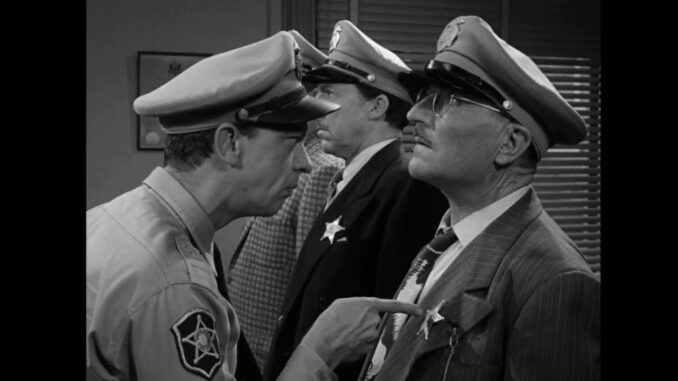
The whispers of gentle laughter still echo from Mayberry, a fictional small town where simplicity reigned and wisdom often wore a homespun cloak. At the heart of its enduring charm, alongside Sheriff Andy Taylor’s quiet sagacity, stood Deputy Barney Fife. With his slender frame, twitching mustache, and a uniform always a touch too starched, Barney was a whirlwind of well-intentioned incompetence, bluster, and endearing insecurity. While often the comedic foil, a character we loved to laugh at, Barney Fife, perhaps unwittingly, taught us a lesson about human nature that, once observed, we never forgot: true authority and respect are earned through quiet confidence and understanding, not through desperate displays of power or overzealous enforcement.
Barney's default mode was a frantic dance between wanting to "nip it in the bud!" and consistently tripping over his own good intentions. His one bullet, kept in his shirt pocket "in case of an emergency," symbolized his approach to life and law enforcement: an over-preparedness for scenarios he rarely encountered, coupled with a fundamental lack of real-world effectiveness. We watched him cite obscure ordinances, initiate "crime waves" of his own making, and grandstand for the townsfolk, all in a desperate bid to prove his worth. His insecurity was palpable; he craved validation, constantly seeking Andy’s approval or the town's admiration, often resorting to comical exaggerations or ill-conceived schemes to achieve it. Every flustered declaration, every failed attempt to assert dominance, served as a micro-lesson in the futility of overcompensation.
And therein lay the rub, and the core of the lesson. Barney's frantic energy and misplaced zeal were constantly juxtaposed against Sheriff Andy Taylor’s unflappable calm. Andy never needed to shout, never needed to brandish a badge, and certainly never needed to carry his only bullet in his shirt. His authority stemmed from his profound understanding of human nature, his patient wisdom, and his innate ability to de-escalate situations with a quiet word or a knowing glance. While Barney saw infractions and immediate needs for strict enforcement, Andy saw people, their motivations, and the larger context. He understood that sometimes, the best way to uphold the law was to bend it slightly for the sake of compassion, or simply to let common sense prevail.
Barney, for all his foibles, was deeply relatable because he epitomized a part of the human condition: the yearning for significance, the fear of inadequacy, and the often-misguided ways we attempt to overcome them. We recognize a bit of Barney in the boss who micromanages out of insecurity, the friend who boasts too loudly to cover up a vulnerability, or even in ourselves when we try too hard to impress. His failures, therefore, weren't just funny; they were cautionary tales. They illustrated that true leadership isn't about the volume of one's voice or the rigidity of one's rules, but about the depth of one's character and the quiet strength of one's conviction.
The lesson Barney Fife taught us wasn't delivered through a preachy monologue or a grand, moral declaration. It was embedded in the very fabric of his character, amplified by his contrast with Andy. He showed us, inadvertently, that confidence isn't a performance; it’s an inner state. Respect isn’t demanded; it’s earned through consistent integrity and a genuine understanding of the world around us. And authority isn't about the power we wield, but the wisdom with which we choose not to wield it. Long after the laughter fades, the image of Barney, flustered but ever-earnest, remains a poignant reminder that the most profound lessons often come from the most unlikely teachers, showing us not how to be, but how not to be, thereby illuminating the path to genuine grace and effectiveness.